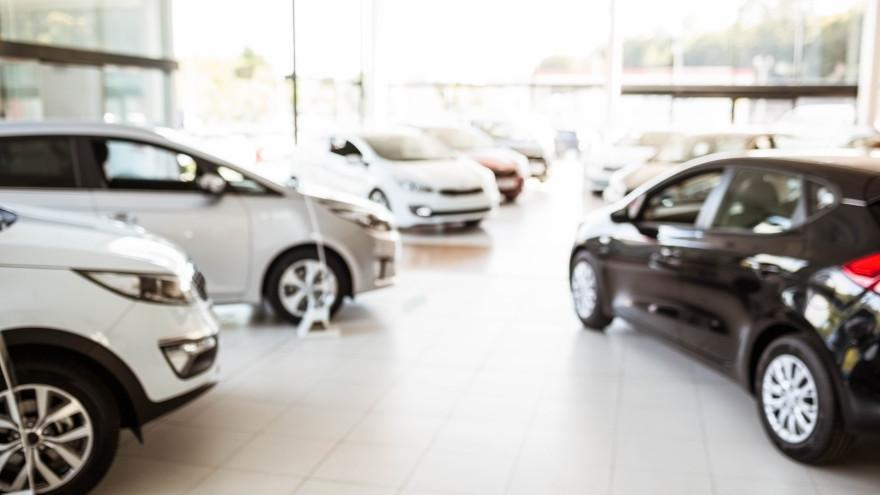COMMENTARY: Weathering the storm — how dealers are setting themselves up for success in a COVID-19 environment

By subscribing, you agree to receive communications from Auto Remarketing and our partners in accordance with our Privacy Policy. We may share your information with select partners and sponsors who may contact you about their products and services. You may unsubscribe at any time.
ATLANTA –
The COVID-19 pandemic has hit the used-car industry hard.
Dealership lots that were once filled with customers turned into ghost towns overnight. Consumers were suddenly home bound after stay at home orders went into effect across the country, and even when restrictions were starting to lift, people were hesitant to venture outside due to safety concerns.
Despite this, used-car sales started to see an improvement at the beginning of April and have been slowing climbing since. While things will probably not return to normal anytime soon, dealers have found ways to pivot their businesses to continue meeting a growing consumer demand.
While consumers are still looking to purchase vehicles, many have changed the criteria for what they’re looking for. Vehicles in the $10,000 or less range have seen an increase in demand as more car buyers have become budget conscious after the recent downturn in the economy.
SUVs and trucks have also experienced greater buyer interest, which may be the result of lower gas prices after oil hit an all-time low in March. Because of this, inventory liquidation has become a top concern for independent dealers who are trying to offload vehicles that are no longer in demand.
To help make room for new inventory, some dealers have turned to digital tools. It’s important for dealers to keep an eye out for any shift in their market’s trends to ensure their lots are stocked with the types of vehicles consumers are currently looking for. Having the right inventory helps increase sales versus being stuck with inventory that customers have lost interest in.
Subscribe to Auto Remarketing to stay informed and stay ahead.
By subscribing, you agree to receive communications from Auto Remarketing and our partners in accordance with our Privacy Policy. We may share your information with select partners and sponsors who may contact you about their products and services. You may unsubscribe at any time.
Dealers are creating digital buying solutions that allow customers to shop from the comfort of their home in response to consumer demand for a hands-free car shopping experience.
Michael Rudman, owner of Scottsdale Wholesale Direct in Scottsdale, Ariz., launched his new company Tommy Camper Vans just a few short months before the pandemic.
Despite the timing, his business has been booming partially due to the fact that he’s made it easy for interested buyers to view detailed inventory information online. He’s also incorporated 360-degree online tours of all his camper vans in addition to offering customers the option to FaceTime which has helped grow his customer base.
When customers do need to come in, dealers like Darrin Delfelder of AZ Auto Hunters in Phoenix have taken precautionary measures to ensure their safety by scheduling private appointments. Delfelder tries to complete as much of the sales process as possible beforehand, such as checking a buyer’s credit history and completing any needed paperwork so that everything is ready for them to sign upon arrival, significantly reducing the time they need to be at the dealership.
Following in the footsteps of retailers, several dealerships have implemented sanitization processes and installed plexiglass in high traffic areas in an effort to keep customers healthy. Antimicrobial treatments are also gaining in popularity thanks to the extra protection they provide to customers who may have reservations about purchasing a used vehicle due to the potential increased risk of infection.
Because of this growing demand, more companies who specialize in providing this deep cleaning service are starting to pop up, helping to ease the burden of dealers having to provide the service themselves.
Additional services like offering pickup of vehicles being traded in and drop off of newly purchased vehicles are starting to become a more common offering for independent dealers. Mobile maintenance has also gained in popularity as dealers look for solutions to address future customer concerns when thinking about potential maintenance needs down the road. Providing services like these may not be a deciding factor for customers purchasing a vehicle but it can be an incentive, while also creating an additional revenue stream.
While it will continue to be a bumpy road over the next few months, dealers who’re able to stay agile and adapt to changes that are occurring in the industry stand the best chance of being successful despite the current climate.
Lisa Mackie is vice president of portfolio management at NextGear Capital.


